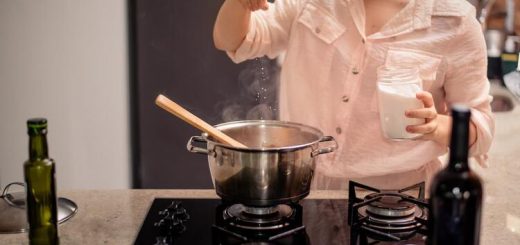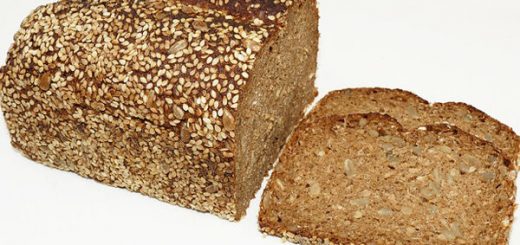9 Natural Remedies for Gas Compression

A healthy person passes gas on average 12-21 times a day. Passing gas is completely healthy and normal. However, due to some conditions and factors, the gas accumulated in the intestine is not expelled. This situation is known as gas compression. Gas compression is manifested by pain and bloating.
Gas compression can be seen in people of all age groups. The incidence is higher in infants. This is a problem that almost every person may encounter from time to time. Although it may seem like a simple situation, it negatively affects the quality of life. The pain can be unbearable.
What Is Good For Gas Compression? 9 Natural Remedies
Gas compression is usually a problem that goes away with healthy eating and exercise. It may be necessary to exclude foods that cannot be digested and disturb the intestines from the diet.
There is no clear answer to the question of how many days gas compression takes. If there are other problems accompanying gas entrapment or if the situation persists for a long time, we recommend that you consult a specialist doctor.
With simple methods that you can apply at home, you can eliminate the symptoms of gas compression such as bloating and pain. Here are the herbal solutions that answer the question of how the gas compression passes …
1) Using a Hot Water Bag
- One of the methods that are good for gas pain and applied at home is to put a hot water bag on the area where the pain is felt.
- The hot water bag helps to relax the muscles and relieve the pain. The person is relieved in a short time.
- Make sure the hot water bottle is tightly closed when using this method. Also, don’t forget to wrap the bag in a towel or cloth when using it!
2) Cumin
- Cumin is a spice often used in legumes, which are known to cause gas.
- We can say that this spice is very effective for gas problems.
- If you are experiencing gas compression problems, you can add cumin to your meals or drink the cumin tea.
- You can even add cumin to a glass of milk and consume it.
3) Fennel
- Fennel is also a plant that is good for digestive problems.
- It helps to easily expel the gases accumulated in the intestine.
- You can chew fennel seeds in your mouth or brew and drink the tea.
4) Ginger
- Ginger is a natural pain reliever and relieves the pain caused by gas compression in a very short time.
- However, taking advantage of this effect of ginger depends on using it in the right proportion. Using too much can have the opposite effect and cause more pain.
- The ideal size of ginger is 1 teaspoon. If you wish, you can add it to your meals as a spice, or you can brew your tea and drink it.
5) Vinegar
- Known for its healing effects, vinegar is one of the foods frequently used in stomach and intestinal problems.
- Especially apple cider vinegar is recommended for gas compression problems.
- If you suffer from such a problem, you can add a tablespoon of vinegar to a glass of drinking water and drink it.
- Vinegar solves the problem of gas entrapment in a very short time. Thus, symptoms such as swelling and pain disappear.
6) Carbonate
- Baking soda helps alkalize the body.
- The alkalinity of the body relieves gas pains.
- Therefore, you can use baking soda to relieve gas compression.
- Moreover, all you have to do is add a teaspoon of baking soda to a glass of warm drinking water and drink it. That is all!
7) Herbal Teas
- Some herbal teas directly affect the digestive system and help the intestines to work regularly. These; chamomile, mint, cinnamon, anise, and cardamom teas.
- Chamomile is known for its soothing properties. Chamomile tea, on the other hand, facilitates defecation and solves the problem of gas compression.
- Peppermint, cinnamon, cardamom, and anise teas also improve the digestive system and eliminate gas compression in both the stomach and intestines.
- You can consume these teas at any time of the day.
8) Broomgrass Cure
- If you are looking for a solution to gas compression, Prof. Dr. You should definitely try this cure that İbrahim Saraçoğlu recommends against gas compression.
- To apply this cure, which is very easy to prepare, you will only need a pinch of heather and a few sips of drinking water.
- All you have to do is beat the heather in the air and swallow it along with a few sips of drinking water. That is all!
9) Hibiscus Cure
- prof. Dr. We are here with another suggestion of İbrahim Saraçoğlu.
- This time you will only need a glass of drinking water with a pinch of coarse hibiscus.
- All you have to do to apply the cure is to swallow a teaspoon of hibiscus with a glass of water every day.
- Saraçoğlu recommends continuing this sphere for 15 days.
What Are the Symptoms of Gas Compression?
The symptoms of gas entrapment can be summarized as follows:
- swelling in the abdomen
- Feeling of pressure in the abdomen
- Abdominal cramps and pain
- Physically larger than the normal abdomen
- Difficulty defecating
- Anorexia
- fast saturation
- Sweating and nausea in some cases
What Causes Gas Compression?
The main causes of gas compression can be listed as follows:
- First of all, we must say that; Since intestinal inflammation affects the defecation system, it can cause gas compression. However, gas is not the only symptom of this disease. In addition, there are symptoms such as high fever, nausea, fatigue. In such a case, you should go to the doctor immediately.
- Pain and cramps in the uterus during menstrual periods also affect the lower abdomen and can cause gas compression in this area.
- The most important cause of gas compression problems is an unhealthy and irregular diet.
- Excessive consumption of fatty foods or a carbohydrate-heavy diet can cause slowing of the intestines and constipation. Constipation is one of the most important factors that cause gas compression.
- Food allergies or sensitivity to certain foods can cause indigestion and flatulence. Gluten and lactose sensitivities are examples of this situation.
- Inactivity is one of the causes of gas compression. It is even recommended for those who have gas compression problems to exercise.
- Eating fast food causes the body to exchange air more than normal. Chewing gum has the same effect. This causes gas formation.
- Foods such as onions, garlic, cabbage, dried beans, cauliflower, broccoli, lentils, artichokes, apples, raisins, dried plums can cause more gas than other foods due to their carbohydrate content. If you are experiencing gas compression problems, we recommend that you consume these foods in a controlled manner.
- Also, when foods such as rice, potatoes, and pasta are repeatedly heated, it can cause gas formation.











